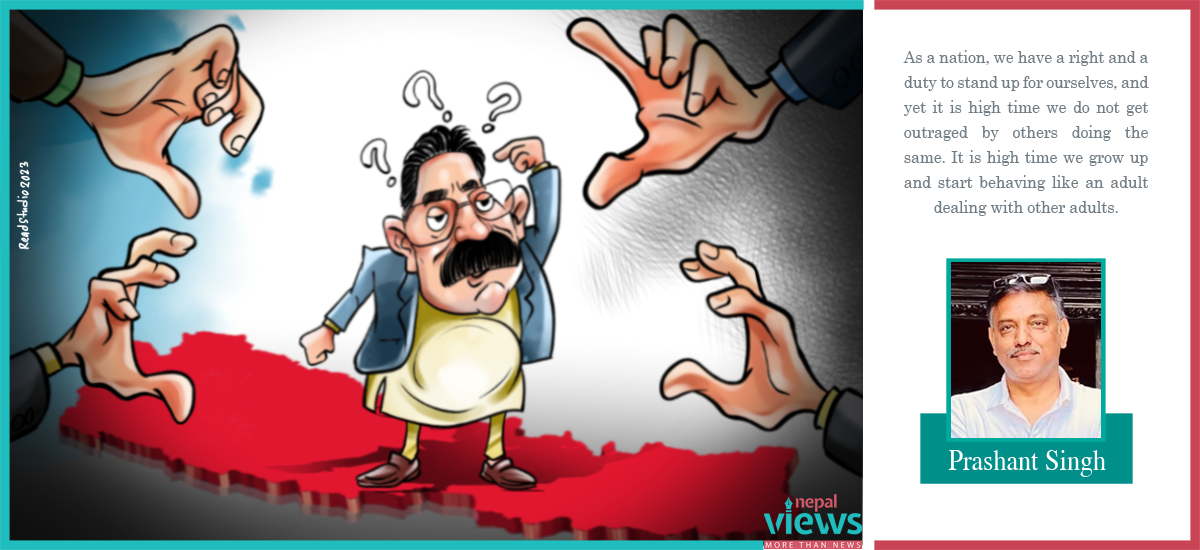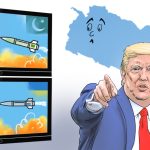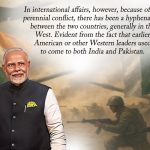A plant that continues to grow without maturing is an unproductive plant. Worse- it may turn into a rogue plant. A farmer, observing this anomaly, is bound to be circumspect. A toddler throwing tantrums may be an enjoyable experience for some, but once she goes past a certain age the same tantrum becomes an irritant. Nepal is taking way too long to grow up, and the world is getting sick of it. This is getting reflected in the behavior of most nations who have been longtime ardent supporters of Nepal’s development.
The insistence of the US authorities to conduct a fair investigation in the fake-Bhutani-refugee scam, as reported in the media, is an example of the growing frustration of the international community with the State of Nepal. The tantrums Prachanda and company (made to look like all of Nepal) threw before and during the ratification of MCC calling it a ‘sinister design of the Americans’ was yet another example of the irritating toddler behavior, and the grown-ups’ world having to put up with that. The “don’t ask, don’t tell” 12-point explanatory note, unilaterally attached to the MCC Compact, while passing it, added a cherry on top to the toddler’s cake. Soon after, a letter came to the fore wherein the Chief of Nepal Army was found requesting the US Government to join their State Partnership Program (SPP). The letter clearly mentioned that the signatory had been “authorized by the government of Nepal.” The toddler brigade made a big fuss about it, just like they did with the MCC, but none of the toddlers took responsibility for authorizing this letter. In the mayhem that followed, Nepal’s Prime Minister’s proposed trip to the US, an event about to come after decades, got canceled.
Nepal has been a darling of the world for a long time.
The US President Woodrow Wilson’s advocacy of independent nations with sovereignty over their affairs in the aftermath of the World War I; the battering the colonial European nations got at the hands of the eventually-defeated Nazi Germany during World War II; and the postwar wave of political protests against colonial rule led to a huge surge in the number of sovereign nations in the 20th century. The Shah/Rana ruled Nepal, a client-state of British India, following a regime change, also got its membership of the UN in 1955- and thus got recognized as an equal member of the comity of nations. Right since Nepal opened herself (1950s), the international community has been increasingly generous and compassionate towards her development.
For some two centuries before that, the Britishers spared Nepal of the disgrace of colonization, treating her relatively respectfully. Despite having an upper hand at the culmination of the 1814-16 war, the East India Company ensured that the Gorkhali state remained financially afloat. They returned a significant bit of land they had confiscated from the Gorkhalis in the war as a reward of the latter’s help in quelling the first Indian war of independence (1857). They signed a treaty with Nepal in 1923 giving her relative independence, and got it registered with the League of Nations. This was the time when the Britishers were tightening their noose over undivided India (today’s India, Pakistan and Bangladesh). The Jallianwala Bagh Massacre had happened only a few years ago leading to the Non-Cooperation movement by Mahatma Gandhi et al. Of course, the favorable treatment of Nepal by the British Empire, during the 19th and 20th century, was an outcome of the struggle between the British and Russian Empire (later Soviet Union) for influence over Central Asia and the adjoining regions- a struggle the British Author Rudyard Kipling famously named “The Great Games.” Whatever be the motivation, the fact remains that Nepal got a favorable treatment by the Britishers for an awfully long time.
Both our neighbors have been rather nice with us, but now they are getting tired of us.
The good fortune continued even in the post colonial era when India got Jawaharlal Nehru as its first Prime Minister. Nehru, being a well-read man, had a deep knowledge of history and contemporary geo-politics. Despite playing a crucial role in ousting the British, Nehru valued the latter’s acumen on the geo-politics of the time and gave it a continuity despite strong protests from the closest of his compatriots. He preferred democracy over autocracy in Nepal, and threw caution to the winds to dissolve the draconian Rana Regime. Being the Prime Minister of India, he had an obvious priority of securing the Indian interest first, particularly at a time when the victorious Communist regime in China was moving into Tibet. Nehru got a “friendship treaty” signed with the Ranas (July, 1950) before booting them out (Feb, 1951) in active association with King Tribhuvan and the burgeoning democratic forces of Nepal.
The 1950 treaty was basically a replica of the 1923 (Britain-Nepal) treaty. Nehru’s detractors in India vehemently criticize him, to this date, for signing what they consider was a favorable treaty for Nepal, given Nepal’s vulnerability at the time. The 1950 treaty gave Nepal a much better deal when compared with the treaties India signed almost contemporaneously with the other Himalayan Nations of the time, namely, Sikkim (1950) and Bhutan (1949). The comparison is important especially while peeping into the Indian mindset as they, in their worldview, were responding to what they considered a belligerent Chinese foreign policy attributed to Mao Zedong called “Five Fingers of Tibet.” This policy (never officially confirmed by China) considered Tibet to be China’s right hand palm; and Laddakh, Nepal, Sikkim, Bhutan, and Arunachal Pradesh as its five fingers- and that it is China’s responsibility to “liberate” these regions. Volumes could be written on the benefits to us Nepalis from the great and open relationship with India emanating from the 1950 treaty. Nehruvian policy guided Indo-Nepal relationship until 2014. The advent of Narendra Modi as the Prime Minister of India saw an attempt to give a new dynamism to the otherwise ossified relationship. But eventually, it appears, those making such efforts too got tired of Nepal’s toddler behavior- and went back to the conventional ways of dealing with her.
As for China, their goodwill for Nepal seems never to have diminished. Back in the day, their army returned after forcing their way to Betrawati (1792)- a close vicinity of Kathmandu valley. This was the time when Prince Bahadur Shah was stuck in a messed up situation with the East India Company- the only force that could have helped him in his war against the mighty China. Following this war, and the treaty that came about, both Nepal and Tibet accepted the Qing (Chinese) suzerainty. And yet in later years, the Chinese remained stricter in enforcing their suzerainty over Tibet, but never with Nepal.
China’s biggest gift to Nepal was its gracious recognition of Mount Everest as being located in Nepal. The ridge line being the international border, China could have easily created a dispute out of it- to say the least. From building a connecting road from Tibet to Kathmandu to investing in several factories and infrastructure projects, till date, China’s help to Nepal has been of huge magnitude and wide latitude. China, on record, has always encouraged Nepal to have a good relationship with India. From inviting Nepal to sign BRI in 2017- the premiere project of China to offering to elevate Nepal-China ties to “Strategic Partnership” during the Chinese President Xi Jinping’s visit to Nepal in 2019, China has contributed more than its due in expediting Nepal’s development. Like others, the Chinese too certainly had/have their own strategic reasons for doing so- but the fact remains that Nepal was and still is a huge beneficiary of its relationship with its northern neighbor. China, it appears now more than ever before, to be pushing Nepal to be serious about what it wants from her and what it does not want. Nepal, continuing on with her toddler behavior, tirelessly plays “India Card” with China and “China Card” with India just like the little ones do to have their way with their parents. It is not fun anymore for the chinese- and it is becoming more and more obvious with every passing day.
The Rest of the world too is getting weary of Nepal.
The State of Nepal, it appears, is yet to recognize that the ‘National Strategic Interest’ of other nations is not a good or a bad thing. It simply is a ‘reality’- it is a natural phenomenon. Every nation has to live with it. The only thing Nepal should worry about is her own interest, just like all other nations do. To claim that the Western Embassies operating in Kathmandu are spreading Christianity or promoting ethnic separatism in Nepal is simply outrageous. To see all the INGOs and professionally run NGOs as part of some global subversive project committed to destroy the very fabric of Nepal is beyond ludicrous. As a matter of fact, inefficiencies and bureaucratic delays aside, the donor agencies and I/NGOs of Nepal had made a significant impact every time the government agencies of Nepal worked with them in the spirit of collaboration. Nepal’s progress in the field of Poverty Reduction, Education Access and Literacy, Maternal and Child Health, Biodiversity Conservation, Community Forestry- all could be significantly attributed to the hard work of development workers working with such agencies- both foreigners and natives.
This is not to say that there are no efforts on the part of foreign nations and foreign agencies that are detrimental to our interest. There could be some, for sure. There would always be some bad apples in any lot- we cannot simply wish them away. As adults we know there is danger outside the safety of our homes, and still, every morning, we set out to do the work we love or the work that earns us a living. As a nation, we have a right and a duty to stand up for ourselves, and yet it is high time we do not get outraged by others doing the same. It is high time we grow up and start behaving like an adult dealing with other adults. It is high time we make deals and recognize that others are not obligated to help us. This overly extended toddler-dom is making a terrible impression of us on others. This way, slowly but surely, we will lose all our friends.
[email protected] (The contributor is a political activist from Nepal)











